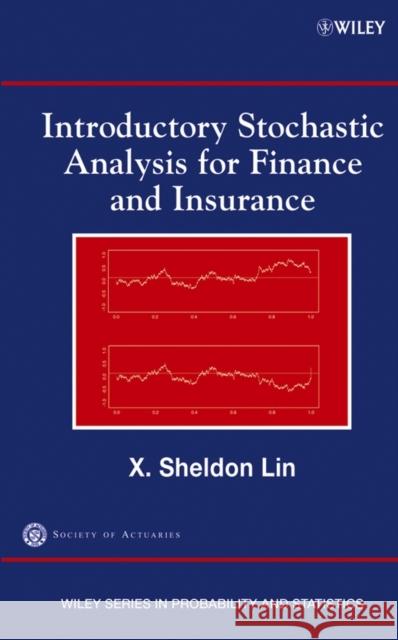Introductory Stochastic Analysis for Finance and Insurance » książka
Introductory Stochastic Analysis for Finance and Insurance
ISBN-13: 9780471716426 / Angielski / Twarda / 2006 / 248 str.
Incorporates the many tools needed for modeling and pricing in finance and insurance
Introductory Stochastic Analysis for Finance and Insurance introduces readers to the topics needed to master and use basic stochastic analysis techniques for mathematical finance. The author presents the theories of stochastic processes and stochastic calculus and provides the necessary tools for modeling and pricing in finance and insurance. Practical in focus, the book's emphasis is on application, intuition, and computation, rather than theory.
Consequently, the text is of interest to graduate students, researchers, and practitioners interested in these areas. While the text is self-contained, an introductory course in probability theory is beneficial to prospective readers.
This book evolved from the author's experience as an instructor and has been thoroughly classroom-tested. Following an introduction, the author sets forth the fundamental information and tools needed by researchers and practitioners working in the financial and insurance industries:
* Overview of Probability Theory
* Discrete-Time stochastic processes
* Continuous-time stochastic processes
* Stochastic calculus: basic topics
The final two chapters, Stochastic Calculus: Advanced Topics and Applications in Insurance, are devoted to more advanced topics. Readers learn the Feynman-Kac formula, the Girsanov's theorem, and complex barrier hitting times distributions. Finally, readers discover how stochastic analysis and principles are applied in practice through two insurance examples: valuation of equity-linked annuities under a stochastic interest rate environment and calculation of reserves for universal life insurance.
Throughout the text, figures and tables are used to help simplify complex theory and pro-cesses. An extensive bibliography opens up additional avenues of research to specialized topics.
Ideal for upper-level undergraduate and graduate students, this text is recommended for one-semester courses in stochastic finance and calculus. It is also recommended as a study guide for professionals taking Causality Actuarial Society (CAS) and Society of Actuaries (SOA) actuarial examinations.











